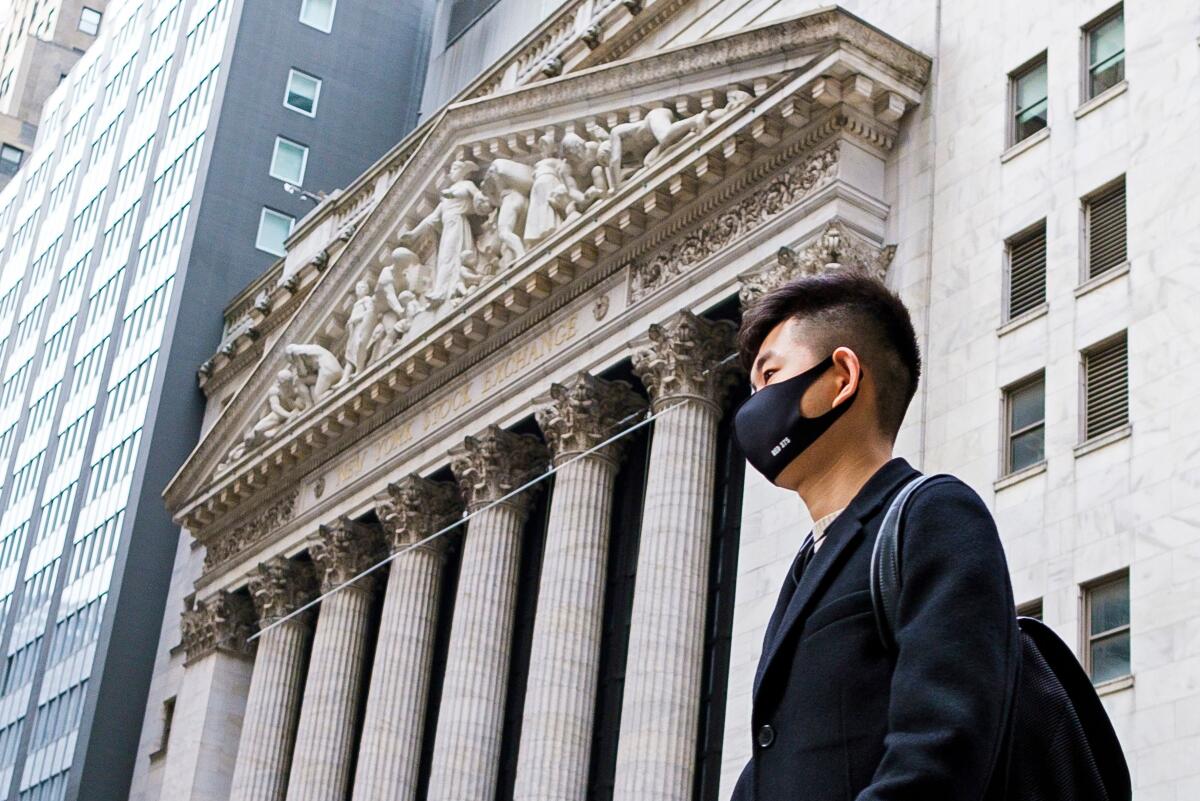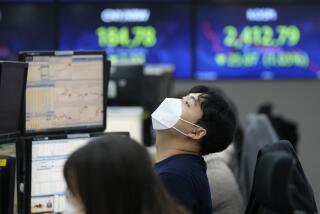Dow drops more than 600 points as coronavirus fears hit global markets

Investors who assumed the quarterly deluge of corporate results would determine the direction of stocks in late January have obviously found themselves with much bigger concerns to cope with.
Earnings season is fast being forgotten in a market where cascading fear about the human toll of coronavirus has come to dominate sentiment.
The S&P 500 index fell the most since August and the Dow Jones industrial average dropped more than 600 points as traders remained on edge over the effects of the disease that has now infected about 10,000 people around the world. A gauge of U.S. equity volatility surged to an almost four-month high. Caterpillar Inc. plunged as its outlook trailed estimates, adding to worries about global business spending.
A raft of indicators show how the outbreak has drowned out news that would ordinarily be obsessing Wall Street traders. Correlation among stocks has shot up, the opposite of what usually happens when companies disclose results. Surprisingly strong earnings from a handful of trillion-dollar megacaps has done nothing to boost their peers.
“Markets are trading on virus fears, not improving U.S. fundamentals,” said Michael Kantrowitz, head of portfolio strategy at Cornerstone Macro.
The S&P 500 sank 2.1% in five days, wiping out gains for the year and landing at 3,225.52. The Dow on Friday dropped 2.1%, falling to 28,256.03.
As recently as Thursday, it seemed possible stocks would take the health scare in stride after the World Health Organization boosted efforts to contain the virus. Then came Friday, when mounting concern about the spread of the illness stoked the biggest sell-off in the S&P 500 in six months.
Tractor giant Deere & Co. and beverage maker Coca-Cola Co. closed their facilities in China, while Apple shut some of its stores. Regions that are home to a Tesla Inc. plant, a Nike Inc. factory and a Foxconn plant that makes iPhones have been affected. Air carriers including American Airlines and Delta Air Lines suspended flights to China on Friday; they saw their stocks fall 3.2% and 2.4%, respectively.
The outbreak will cut U.S. first-quarter economic growth by 0.4 of a percentage point, Goldman Sachs Group Inc. said, as the number of tourists from China plunges and exports to the Asian nation slow.
As equity markets from Europe to Australia blared red, it became clear that surprisingly strong earnings from Apple, Microsoft and Amazon — stocks that together make up 13% of the S&P 500 — could do little to support equities. All but one of the 11 S&P 500 sectors fell Friday as the index dropped 1.8%. If it hadn’t been for Amazon’s 7.4% rally, the index would have widened its Friday loss to 2%.
The outbreak has not only pushed the S&P 500 lower but triggered a jump in lockstep moves among stocks, something that usually doesn’t happen during earnings season when individual companies deliver results. Correlation among the top shares in the S&P 500 has surged to as high as 0.33 from 0.20 three weeks ago, data compiled by Bloomberg show. A reading of 1 means they’re moving in unison.
It remains to be seen whether the outbreak of the virus that has killed 213 people and infected more than 9,000 will have a long-term effect on the U.S. economy and stocks. For now, concern about the spread of the virus has made it difficult to care about the small distinctions in earnings that can sway equities in normal times.
For the record, among S&P 500 companies that have reported results, 71% have beaten profit estimates, in line with the 10-year average, data compiled by Bloomberg Intelligence show. What had been forecast to be a 1.9% decline in earnings is now on the verge of turning positive.
Those facts mean little in a market ruled by anxiety.
“Markets were complacent earlier this week because past viruses didn’t create a drastic global dislocation of growth — that was the consensus, until today,” Chad Morganlander, a portfolio manager at Washington Crossing Advisors, said by phone. “Investors don’t know what’s going to happen, and they are pricing that uncertainty in. There is a lot of vulnerability when it comes to global growth expectations and the U.S. market that’s been priced to perfection.”
More to Read
Inside the business of entertainment
The Wide Shot brings you news, analysis and insights on everything from streaming wars to production — and what it all means for the future.
You may occasionally receive promotional content from the Los Angeles Times.










